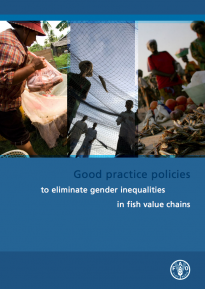Supportive Policy Environment for Artisanal Fish Smoking
Policy should aim create an environment which enables the uptake of appropriate technology, good practices and improve access to infrastructure, services, and markets which minimize food loss and waste (FLW) in artisanal fish smoking. Examples include encouraging the development of purpose built fish smoking facilities which cater for the gendered needs of users, investment in upgrading the skills and knowledge of processors, and facilitating access to affordable credit for investment in improved technology and equipment.
Many processors involved in artisanal fish smoking operate as small/medium scale enterprises (SME). Policy that supports the sustainable growth of such businesses is likely to encourage the use of improved appropriate technology, improved hygiene and handling standards which contribute to a reduction in FLW.
Key Publications
Value-addition and SME's: Raison D'etre and Lessons Learnt This document describes work undertaken in Africa to support small and medium-sized enterprises, and to reduce food waste losses, in regards to fish product. |
| |
Good Practice Policies to Eliminate Gender Inequalities in Fish Value Chains This FAO publication highlights key gender inequalities in fisheries and aquaculture value chains that lead to underperformance by women, and proposes good practice policies that can lead to increases in production and processing of high-quality fish. | ||
The NEDPAD-FAO Fish Programme conducted studies on post-harvest fisheries losses in the Volta Basin riparian countries. The objective was to assess the causes, nature, and contextual patterns of losses within the shared water body. |
More Resources
More Resources
31 October 2023














